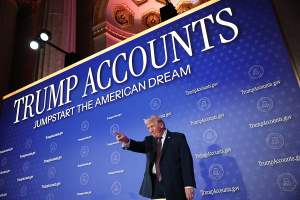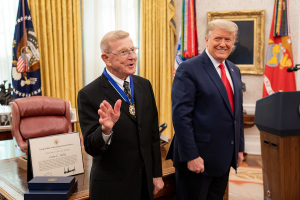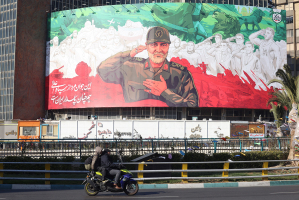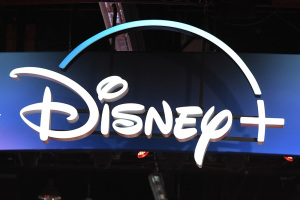UN Flies Flags at Half-Mast for Kim Jong-il's Funeral
What level of respect should the world display during a dead dictator’s memorial?
That was the challenge faced by the United Nations this week when North Korea publicly mourned its late leader Kim Jong-il on Wednesday. AsiaOne.com reported Wednesday that the U.N. lowered flags at its New York City and Geneva offices to half-mast during Kim's funeral procession. It's a common courtesy, Choi Soung-ah, U.N. spokeswoman for the Secretary-Genera, told AsiaOne, following the death of any member nation's leader.
"The Secretary-General has learned that the leader of the Democratic People's Republic of Korea (DPRK), Kim Jong-il, has passed away," U.N. Secretary-General Ban Ki-moon said in a Dec. 19 statement following Kim's heart attack. "The Secretary-General extends his sympathy to the people of DPRK at this time of their national mourning. The United Nations system will continue to help the people of the DPRK."
Scott Snyder, the Council on Foreign Relations' senior fellow for Korea studies, told The Christian Post that the U.N.'s response reflects their difficult relationship with North Korea. Though it's a U.N. member, he said, North Korea’s antisocial tendencies and aggressive behavior have not made the Asian nation many close friends.
"North Korea is an enduring state but not an endearing one," Snyder said, citing Kim's long but isolated reign before his death. "The level of warmth in state-to-state relations with North Korea is low. Most of its major partners are also outcasts on the global stage."
North Korea's main conflicts with the world, Snyder explained, include South Korea and missile production. The totalitarian regime resents its democratic, capitalist neighbor, he said, and wants ballistic and nuclear missile technology if possible. Attempts at reconciliation have stalled, Snyder concluded, and North Korea will likely keep the same policies under Kim's son, Kim Jong-un.
Jerry Dykstra, director of media relations for Open Doors USA, said he also suspected North Korea's new ruler would stay the course set by his father. Chief among the former Kim's practices, he said, was oppression of the nation's Christian community.
"I expect the persecution of Christians in North Korea to increase under the new regime," he said.
Human rights remain divisive in diplomacy with North Korea, Snyder said, since no one is sure how bad conditions are there. Its government maintains strict controls on information, he said, backed by a media that sets the standard for all of the country's reporting. What has emerged is startling – Snyder described North Korea as the "most repressive political environment in the world."
"The organizations that measure human rights around the world consistently put North Korea at the bottom of their lists," he said. "Everyone in North Korea is essentially a hostage to the political structure there. If you wanted to make a historical comparison, it's similar to Nazi Germany, or more recently, Bosnia."
U.N. Watch, a Geneva group that monitors the effectiveness of the U.N.'s charter, released a statement Wednesday questioning the U.N.'s decision to fly flags at half-mast during Kim's funeral. It said that though the U.N. should observe its own rules regarding members, Kim's tyrannical reign doesn't deserve any kind of credibility.
"Yes, the world should mourn today," said Hillel Neuer, U.N. Watch's executive director, in the statement. "Not for a mass murderer, however, but for the still-suffering people of North Korea, who face the prospect continued oppression under the incoming dictatorship of Kim Jong-il's son, Kim Jong-un, who's shown no evidence of being any less ruthless than his father."
Snyder said the U.N. doesn't typically judge the legitimacy of governments and thus was observing the same practices for all its members. Though lowering the U.N.'s flags might seem respectful, he said it was merely official behavior. A country as hostile as North Korea, he said, might not cave to international pressure on its policies anyways.
"The U.N. Human Rights Council can name and shame offenders, but the costs to them are largely prestige benefits," Snyder said. "Is lost prestige going to be significant enough to change behavior? I don't believe many people would say it would for most leaders who have violated their citizens' human rights."



























